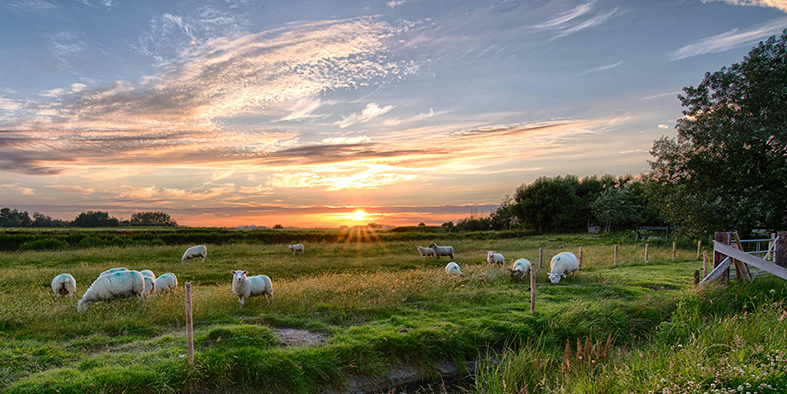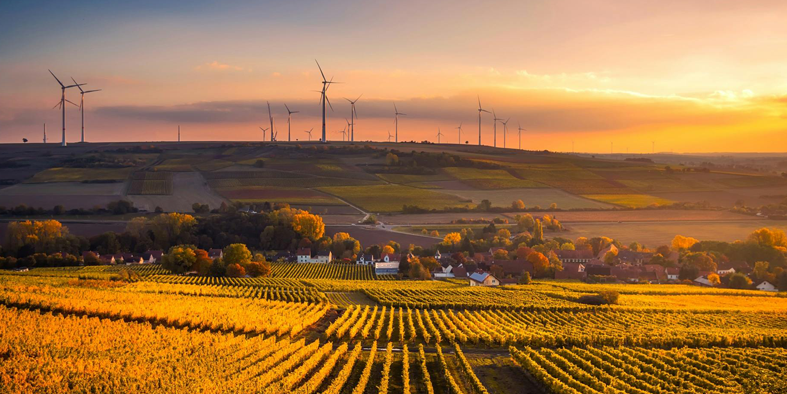Over the past year, this blog has touched upon how broad the topic of ‘sustainability’ is, and that the industry landscape is rapidly evolving as it relates to policies, support and best practice. This means that everyone is having to develop their own strategies without the benefit of well-established industry guidelines, and as a supplier, it can be challenging to know how best to serve the varying different needs of customers in the shifting landscape.
So in order to better understand customers that source across our fresh businesses, we recently completed an exciting research project where we interviewed twelve customers from different sectors that procure products across our businesses to delve into their positions, priorities, challenges, and especially how best we can support them. We spoke to caterers, restaurants and pub chains, universities, healthcare providers, events caterers, and hotel groups, asking a set of questions that hopefully opened up the conversation to capture information we can then turn into actionable support.
These conversations were eye-opening, and resulted in 10 key learnings for our business…. I won’t go into all of them here, but wanted to share a few highlights:
Depending on where a customer is on their ‘sustainability journey’, they want and need different things from their suppliers
This may sound obvious, but customers are in various stages of maturity as it relates to their own sustainability journeys. ‘Sustainability’ is still a relatively young concept – and how each business approaches it depends on several factors including their model, products, suppliers, priorities, values, customer base and available resources, to name but a few.
We found that the customers we spoke to fell into about two separate camps: those that had more mature sustainability strategies, resources, internal teams and nominated roles, and those that were in the process of defining their strategies, figuring out approaches, and likely had ‘sustainability’ as part of shared role.
Depending on the customer’s sustainability maturity, they want and need different kinds of information and support from their suppliers. By being able to understand these two clear customer positions and their differing needs, we are able to better tailor our own support to make it more effective and meaningful for our customers.
Carbon data is a main priority, animal welfare info comes second, followed by all other topics
We wanted to understand how sustainability priorities differed among various sub-topics. For instance, do customers want more information on packaging, water neutrality, or animal welfare – and did it change depending on whether we were talking about meat, fish or produce categories? The overwhelming message from customers with more mature sustainability strategies customers was that the most important information suppliers can share is carbon data, and all the information that goes into the production, manufacturing and transportation of a product. Information about animal welfare was a close second, and customers’ comments about their reliance on the MSC standard and RSPCA certification reflected that.
For customers with less mature sustainability strategies, we found their answers varied in terms of priorities among sustainability sub topics. For instance, they all gave different answers in terms of what was most important – there wasn’t the same uniformity in responses with this group. Their answers seemed to be more influenced by their own product offering, challenges and customer base requirements – and was more likely to change to depending on the phrasing a question.
Certifications are important but there are gaps regarding what customers need
Over the course of the conversations, we interrogated customer attitudes and reliance on the available certifications. In general customers said that third party certification is incredibly helpful, conveys important signals to their own end customer, and they rely on it as a shortcut as it reduces their own due diligence requirements. However, current certification only goes so far.
Several customers said that the industry was not yet in a place that there was a reliable certification that spoke to the overall ‘sustainability’ of a product. Many certifications cover elements of sustainability, animal welfare practices, modern slavery concerns – however what is needed is an assessment the completes more a life cycle analysis of a product from start to finish. This will likely change over the coming years and as sustainability metrics and requirements standardize for the industry, and it sounds like an introduction of a reliable sustainability certification can’t come soon enough.

Hopefully this brief synopsis of some of our findings gives you an idea of the findings gathered throughout our customer interviews. We have distilled the information into 10 key takeaways that we will be using to build on our own sustainability actions and customer marketing support going forward, we’re really excited to create a more bespoke offering that customers feel value from.
We would be very happy to share a more detailed (and anonymised) summary of our research. If this is something you would like to receive, please speak directly to your account manager.
We are here to support our customers in their journey of fresh food pairings and have many ways in which we can help, such as giving access to our development chefs, seasonal buyers and fresh experts. To become a customer, register here.
Follow us on social media for regular updates on Instagram, LinkedIn, X and Facebook


